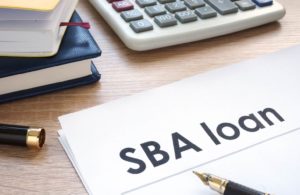The “Coronavirus Aid, Relief, and Economic Security Act” (CARES Act) was passed the U.S. Senate 96-0 on March 26, 2020. If passed by the House and signed by the President, the Senate Bill should give much added to relief to businesses with 500 employees or less.
The Act will provide small businesses with forgivable SBA loans (doesn’t have to be paid back) that will be easily obtainable without the need for a personal guarantee to reimburse the business for payroll related expenses for an 8 week period (on each employees wages during the 8 week period up to $100,000 annualized per employee), rent, mortgage payments, utilities and interest on some debt. Since the forgivable loan is essentially a grant, you will want to investigate and understand this option.
Regarding the forgivable SBA Loan portion of the bill:
- There is a waiver of the personal guarantee requirement for a SBA loan taken under the Act during the covered period (Feb 15, 2020 to June 30, 2020).
- The maximum loan amount is 2.5 times average monthly payroll cost in 2019 [The definition of payroll costs includes salary (up to $100,000 per year per employee), vacation, leave time, group health care benefits premiums, retirement benefits (i.e. company match), state or local tax assessed on compensation of employees].
- The loan can only be used for:
- payroll costs (as defined above);
- mortgage payments;
- rent;
- utilities; and
- interest on debt obligations incurred prior to the covered period.
- For any amounts not forgiven, the maximum maturity of the loan is 10 years from the date of the loan forgiveness application with interest not to exceed 4%.
- Loan Forgiveness:
- The covered period is 8 weeks from the date of the origination of the loan
- The following amounts will be forgiven during the covered period:
- Payroll costs (not to include compensation in excess of $100,000 per year for any individual employee)
- Rent and utilities (‘covered utility payment’ means electricity, gas, water, transportation, telephone, or internet access
- Interest on mortgages
- Interest on any other debt incurred before covered period
- The amount of forgiveness shall be excluded from gross income and is not taxable.
- Reduction in Loan Forgiveness:
- The goal of the Act is to avoid layoffs so there is a penalty or reduction in the loan forgiveness if you reduce the number of full-time employees during the covered period.
- The forgiveness calculation is going to compare the average total number of full-time employees during the covered period to either (the borrower has the option of choosing): (1) average number of full-time employees for the period February 15, 2019 to June 30, 2019; or (2) the average number of full-time employees beginning on January 1, 2020 and ending on February 29, 2029. The loan forgiveness by the percentage equal to the difference obtained by subtracting the number of full-time covered employees from the selected period divided by number of full-time employees during selected period.
- The forgiveness calculation will also be reduced by the amount of any reduction in total salary or wages of a full-time employee that exceeds 25% of their total salary during the most recent full quarter during which the employee was employed before the covered period.
- In addition, there is a provision that indicates that a borrower that receives assistance under section 7(b)(2) of the Small Business Act related to COVID-19 for purposes of paying payroll support shall not be eligible for a loan described under this new Act. Therefore, you need to be very careful and weigh all options before applying for any SBA loans.
Brian Paul is a family law attorney and partner in the Lawrenceville, NJ law firm of Szaferman, Lakind. He can be reached at 609-275-0400 or via email at bpaul@szaferman.com.
For more COVID-19 related resources and articles visit our COVID-19 Resource Center.
The foregoing is intended for general information purposes and is no substitute for specific legal advice.






